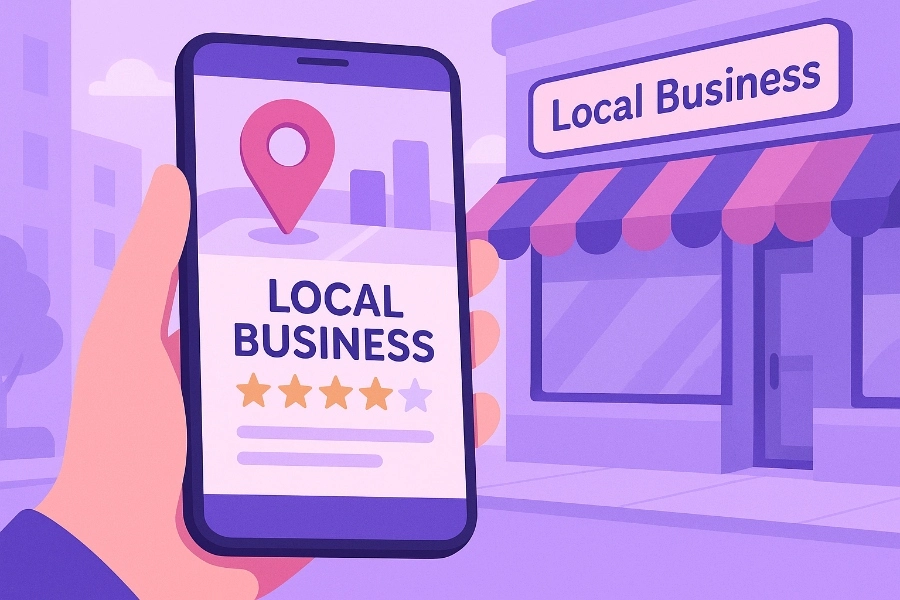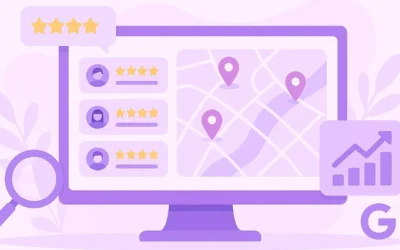SEO, or Search Engine Optimization, is a crucial tool for small businesses seeking to thrive in a competitive environment. Unlike large brands with massive budgets, small businesses can leverage specific, targeted strategies to capture the attention of potential customers. This article outlines best practices to achieve this, from local tactics to advanced techniques. Regardless of your experience level, applying these strategies can transform your business’s online presence.
The Importance of SEO for Small Businesses
Today, most consumers turn to the internet to find products and services, making SEO an essential strategy for any business. For small businesses, SEO not only enhances online visibility but also creates an opportunity to compete with larger companies dominating the market. Even a slight increase in visibility can lead to significant growth in customers and sales.
Moreover, SEO isn’t just a marketing strategy—it’s a long-term investment. High rankings in search engines ensure a steady flow of organic traffic, reduce reliance on paid advertising, and help build a solid, loyal customer base. This type of traffic is often more qualified, meaning users arrive with a clear intent to purchase products or services.
Implementing a proper SEO strategy also improves user experience on your website. From faster loading times to well-organized and relevant content, every SEO improvement benefits both search engines and visitors.
SEO Strategies to Compete with Large Brands
Competing with large brands might seem overwhelming, but with the right strategies, small businesses can carve out their niche. Flexibility and the ability to adapt quickly to trends are key advantages that larger companies often lack. Here are some of the most effective tactics:
Long-Tail Keyword Research
Long-tail keywords are more specific phrases with less competition. For example, while “sportswear” is a very generic keyword, “summer sportswear for women” is more specific and more likely to attract a target audience ready to buy. This approach allows small businesses to position themselves in specific niches where competition is lower, but purchase intent is high.
Tools like Google Keyword Planner or Ubersuggest can help identify these opportunities. Additionally, analyzing related searches on Google can provide ideas for more specific terms your customers are using.
Local SEO to Attract Nearby Customers
Local SEO enables small businesses to compete directly in their geographic area. Optimizing for searches like “cafes near me” or “best bike shop in [city]” ensures local users can find you easily. This includes setting up and optimizing your Google My Business profile and including local keywords on your website. Keeping your address and phone number up to date on your site makes it easy for customers to contact you.
Don’t forget to encourage positive local reviews, as they significantly impact customer decisions and local search rankings.
Creating Valuable Content for Your Audience
Creating useful, relevant content for your customers not only boosts your SEO but also builds trust and loyalty. Think about blogs, how-to guides, FAQs, and videos that address your audience’s needs and problems. For instance, if you own a gardening store, an article on “How to Plant Weather-Resistant Flowers” can attract interested users and convert them into potential customers.
Additionally, using visuals like infographics or video tutorials can increase the time users spend on your page, which is an important factor for improving your rankings.
Leveraging Technical SEO for Better Website Performance
Technical SEO ensures your website is easy for search engines to crawl and understand. Ignoring this aspect can hurt your search rankings, even if you have excellent content. A strong technical foundation acts like the groundwork of a house: without it, no matter how impressive the structure is, it won’t stand.
The Importance of Loading Speed for SEO
A slow site can frustrate users and increase bounce rates, which negatively affects your Google ranking. Use tools like GTmetrix to identify areas for improvement, such as optimizing images and using a content delivery network (CDN). Minimizing unnecessary scripts and enabling file compression can also speed up loading times.
Mobile Optimization: A Must for Small Businesses
More than 60% of searches are performed on mobile devices. If your site isn’t optimized for smaller screens, you could lose a significant portion of your potential customers. Implement responsive design and conduct regular testing to ensure an optimal experience across all devices. Additionally, consider loading times on slower mobile networks by adjusting images and content as needed.
Using Structured Data (Schema) to Improve SEO
Structured data is a type of code that helps search engines better understand your content. For example, it can highlight prices, schedules, or ratings in search results. This not only improves your visibility but also boosts your click-through rate. Implementing JSON-LD is a simple and effective way to add this type of data to your site.
Link Building: Generating Quality Links on a Budget
Link building is essential for improving your domain’s authority, but it can be costly and time-consuming. Fortunately, there are effective strategies to obtain high-quality backlinks without having to invest large sums of money. Inbound links (backlinks) remain one of the most important factors for search engine rankings, as they act as votes of confidence toward your website. However, it’s not just about quantity — the goal is to get links from relevant, reputable websites that are related to your niche.
For small businesses, the ideal approach is to focus on sustainable, creative methods that deliver real value. You can start by creating naturally linkable content — such as comprehensive guides, original statistics, free tools, or case studies — and promoting that content through social media, newsletters, and online communities.
Additionally, actively participating in your industry, both online and offline, opens many doors to earn organic mentions and backlinks. Below, we’ll share some of the best tactics tailored to businesses with limited resources.

Link Building Strategies for Small Businesses
Publish engaging content that others want to share, such as statistics, case studies, or infographics. You can also participate in industry forums, answer questions on platforms like Quora, or collaborate with other content creators. Remember, the quality of links is more important than quantity; a single link from a high-authority site can be worth more than dozens of low-quality links.
Local Collaborations and Mentions in Blogs
Build relationships with other businesses in your community. Collaborations can include shared articles, mentions on their websites, or joint events that generate valuable links. Additionally, reach out to local bloggers who might be interested in showcasing your services. A good practice is to offer them exclusive content or discounts to share with their audience.
Local SEO: The Key to Small Business Success
Local SEO is arguably the most effective strategy for small businesses that rely on nearby customers. By focusing on geolocated searches, you can attract an audience actively searching for services like yours. This ensures your business is on the radar of consumers in your community.

Optimizing Your Google My Business Profile
Ensure all your profile information is complete, including high-quality photos, updated hours, and an attractive description of your services. This not only improves visibility but also helps build customer trust. Additionally, add regular posts to your profile to keep it active and relevant.
Creating Geolocated Content to Attract Local Customers
Publish content specific to your area, such as local events, neighborhood guides, or industry recommendations. This positions you as a relevant and nearby business for your community. Use location-related keywords and showcase your active participation in local events to strengthen your image.
Gathering Reviews to Boost Local SEO
Positive reviews are a critical factor for local SEO. Ask satisfied customers to leave feedback on platforms like Google, and respond to reviews to show you value their input. This improves your SEO and creates a positive perception of your business for future customers.
High-Quality Content to Stand Out Against Big Brands
Content remains the most important differentiator for small businesses. By focusing on solving specific problems and maintaining consistent publishing, you can build a loyal audience. A good strategy is to mix evergreen content with topics related to current trends or events.
Creating Content Focused on Solving Specific Problems
Address common questions in your industry. For example, if you run a tool store, you could create content like “How to Choose the Right Drill for Home Projects.” This type of content attracts users with purchasing intent and strengthens your position as an expert.
The Importance of Consistency in Content Creation
Regularly publishing on your blog not only improves SEO but also keeps your audience engaged. Create an editorial calendar and ensure you cover relevant, seasonal topics. This helps keep your site updated and generates recurring traffic.
Blog Articles and Case Studies to Build Trust
Success stories and detailed articles about your industry experience are ideal for showcasing your expertise. This type of content tends to be shared, increasing your reach. Don’t hesitate to include specific details that demonstrate the real impact of your services on customers.
No matter the size of your business, SEO can make all the difference. Request a free SEO audit and discover how we can improve your rankings.



0 Comments